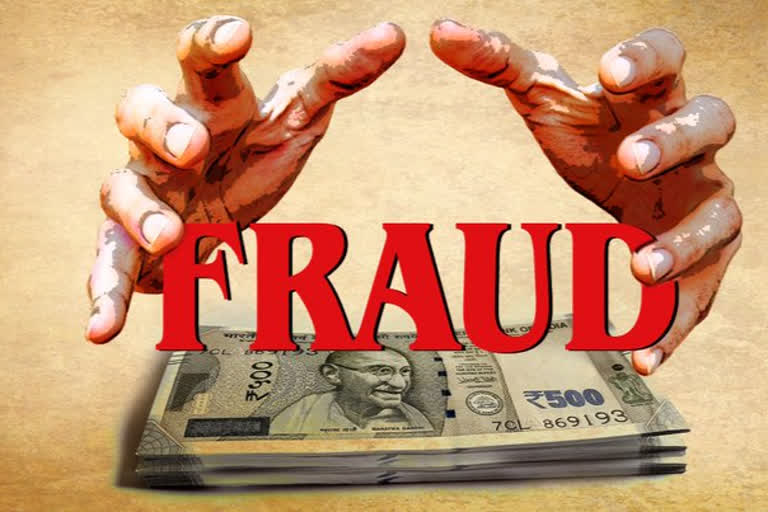New Delhi: A nationwide crackdown against the use of fake GST bills that led to arrest of over 90 people, including three chartered accountants, sent shockwaves among the errant professionals and taxpayers, prompting tax experts to warn them not to play with the legal provisions as tax authorities now have access to tax data in real-time basis to catch such frauds.
In the nationwide drive against the menace of fake GST bills that started on November 9, tax authorities have so far arrested more than 90 people, including three chartered accountants, a lady mastermind from Chennai and another mastermind from Vadodara who created a web of over 115 companies to commit GST frauds, and booked over 3,000 cases.
“Every day, we are witnessing new records of fake GST invoice cases. Certainly, these cases are not good for the economy, tax authorities, and certainly not good for genuine taxpayers,” said Pritam Mahure, a Pune based chartered accountant and GST expert.
DGGI cracks down on tax evaders
The raids by the officials of the Directorate General of GST Investigations (DGGI) also unearthed very complex and sophisticated rackets involving hundreds of bogus firms created for fraudulently claiming and passing the input tax credit (ITC) under the GST.
It prompted the government to call for an urgent meeting of the GST Council’s law committee last month, which recommended a two-pronged strategy of using stricter norms for GST registration and stringent compliance to weed out the risky GST dealers from the system.
“The GST provisions are based on past experiences, from various judgments and plugging loopholes to punish the errant taxpayers. With the evaluation of the RegTech and usage of data analytics, the department can flush out the black sheep faster and more accurately,” said CMA Bhogavalli Mallikrarjuna Gupta, a Hyderabad based GST expert and management consultant.
Information exchange will detect frauds
Mallikarjuna Gupta says the data is being captured and validated from various sources, including the exchange of data between CBIC and CBDT, which has resulted in showing of GST related information in the Form 26AS and availability of the GST data with ICEGATE for processing of refunds, among other things.
Read more: RBI asks HDFC Bank to stop digital activities, sourcing new credit card customers
“The trade and industry, along with professionals, should understand that it is not an easy task to play with the provisions of the law,” Gupta told ETV Bharat, adding that errant taxpayers cannot take the tax authorities for a ride forever.
New Delhi based tax expert Rajat Mohan says fake invoicing is a menace, which is not only resulting in rampant tax evasion but is also leading to massive corruption at the time of assessment and scrutiny.
“High rate of taxes, failure of GSTN to implement invoice matching facility, and frequent change in tax laws destabilized the compliance structure from within, permitting unscrupulous elements to enter into the GST regime,” Rajat Mohan, a senior partner in AMRG & Associates told ETV Bharat.
In order to check such frauds involving fake GST invoices, the law panel of the GST Council, recently suggested Aadhaar based GST registration to restrict the entry of fraudsters in the GST system at the stage of application itself.
Need to protect genuine taxpayers
“GST frauds have become an increasing problem both in terms of the number of cases identified and reported. Authorities have now become susceptible to the self-assessment scheme and are not placing much reliance on the tax filings made by a taxpayer,” Rajat Mohan added.
He, however, warns that a crackdown on bogus taxpayers is critical but it should not lead to the harassment of genuine taxpayers.
“The Department has lately resorted to frequent raids, attachment of bank accounts, physical abuse to the family of taxpayers, and arrests of people suspected of tax evasion. The Department often resorts to coercive methods in every case even though the taxpayer is a professional run reputed corporation,” he noted.
Pritam Mahure, who has written several books on GST, says that the menace of fake GST bills needs to be addressed in a comprehensive manner otherwise it will end up troubling many genuine taxpayers which will bear the brunt of increased compliance requirements during the ongoing Covid-19 global pandemic.
The inherent challenge before the GST authorities is to manage the two extreme ends, how to counter GST frauds while ensuring Ease of Doing Business, he observed.
B. Mallikrarjuna Gupta says the Government implemented self-assessment, self-declaration based GST system by trusting taxpayers and professionals and if it is misused then the authorities would have to change the process both for the GST registration and availment of input tax credit as has been seen recently.
(Article by Krishnanand Tripathi)



